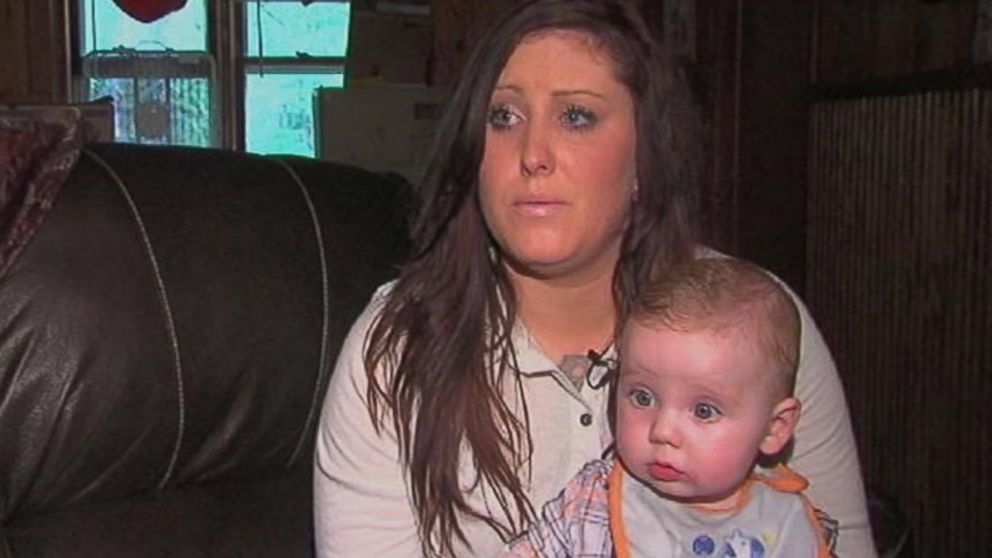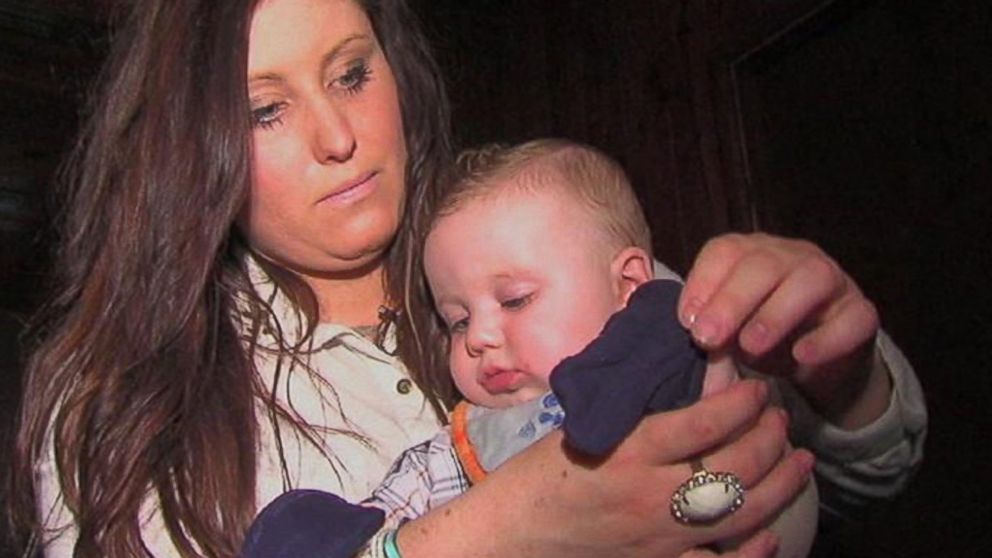Baby Born With Rare 'Butterfly' Skin Condition
Doctors think baby Lane's blisters are the result of a genetic skin condition.
May 13, 2014— -- Brittany Weingart knew something was wrong with her son about a week after he was born when she found tiny blisters on his chin and mouth and couldn’t explain them.
Baby Lane is now 6 months old, and doctors are almost certain he has a rare condition in which his body cannot properly make the protein that anchors skin in place, resulting in painful blisters on his skin.
“Up until about a week ago, I would have told you that he is the happiest baby,” Weingart, 24, of Edinburgh, Indiana, told ABC News. “He still smiles and he’s still happy most of the time, but now he fusses and whines. When you touch him, he flinches.”

As Lane gets older and becomes more mobile, he gets more blisters, which Weingart has learned she must pop and bandage before they can grow and spread, she said.
The condition is called epidermolysis bullosa, and it affects about 1 in 50,000 live births, though it can vary in severity, according to the National Epidermolysis Bullosa Registry. Nicknamed the "butterfly" skin condition because it makes the skin so fragile, epidermolysis bullosa has no known cure.
Read about other children and young adults with this epidermolysis bullosa.

Lane’s case is so mild that only a genetic test will tell whether he has the condition for sure, but Medicaid has refused to pay for it, Weingart said.
At a loss, Weingart created a Facebook page to raise awareness about the condition, and share Lane’s story. Through the page and other fundraising efforts, she said she’s been able to afford the $3,000 test out-of-pocket.
The genetic test can take up to 12 weeks to process, but her family should have answers this summer.
“The diagnosis is important to us because it's scary knowing he has something but not know for sure what it is,” Weingart said. “No, there is no cure or treatment, but a confirmation will give us peace of mind just knowing what exactly it is.”



